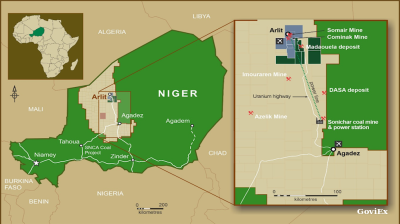Ten people were killed overnight in the latest anti-government protests in Iran, bringing the death toll since the demonstrations began four days ago to at least 12, state TV reported on January 1.
The protests, largely ascribed to popular discontent over worsening economic hardship compounded by perceived corruption and economic mismanagement among officials of the ruling regime, have gained traction among provincial capitals and towns of the country of 80 million. The authorities have clearly made a priority of ensuring demonstrations in Tehran do not gather unstoppable momentum, although the BBC reported police used tear gas and water cannon to quell a rally in the capital’s Engheleb Square. Analysts have expressed doubt that the tumult could eventually pose a mortal danger to the regime, given the lack of overall leadership and coordination in organising what seem to have been spontaneous moves on to the streets and the government’s move to tactically cut internet and social network access in various locations.
In his first address on the protests, aired on national television on the evening of December 31, Iranian President Hassan Rouhani said citizens were free to protest, but not violently. "Our nation will deal with this minority who chant slogans against the law and people's wishes, and insult the sanctities and values of the [Islamic] revolution," he said. Rouhani added: “People are allowed under the constitution to criticise or even protest but… in a way that at the end they lead to a better situation in the country for the people.”
Judiciary Chief Ayatollah Sadeq Amoli-Larijani, meanwhile, urged authorities to crack down on "rioters" and "vandals", state television also reported. "Some individuals are exploiting the situation. This is not right," he said.
Responding to the initial protests, which first broke out in the conservative second city of Mashhad, Majid Rafizadeh, president of the International American Council and Board Member of the US-Middle East Chamber of Business and Commerce, wrote in a piece for the Organization of Iranian American Communities-US: “This misalignment between the fortunes of the Iranian government and the ordinary population has contributed to the sentiments that were expressed in Thursday’s protests. Many of the thousands of demonstrators blamed government corruption for a significant portion of the hardships they were facing. At times, the crowds were heard to chant, ‘If you stop one case of embezzlement, our problem will be solved.’”
Rouhani and Trump’s war of words
The eruption of protest has seen Rouhani return to his war of words with US President Donald Trump, which was previously at its most bitter last September at the UN General Assembly in New York, when Trump’s bellicose address on the “Iranian government [masking] a corrupt dictatorship behind the false guise of a democracy” was met by a reply in which Rouhani talked of his counterpart as a “rogue newcomer to international politics” who was guilty of "ignorant, absurd and hateful rhetoric" which was "unfit to be heard at the United Nations".
At issue during that exchange was the justification for continuing with the 2015 nuclear deal under which Iran agreed to measures designed to prevent any possible attempt at developing a nuclear weapon in return for the dropping of crippling international sanctions. Despite the insistence of all the other major power signatories to the deal that Iran is in full compliance with the accord, Trump continues to lead a unilateral campaign to ‘fix or nix’ the agreement. It might be argued that it is Washington’s refusal to get behind the nuclear deal—and in particular the Americans’ retention under Trump of unilateral sanctions against Tehran and their threats of reintroducing major sanctions, such as measures aimed at Iran’s vital oil exports—that have scuttled the Iranians’ chances in the past two years of achieving the extra economic progress that would have been enough to keep today’s protesters off the streets.
As it is, youth unemployment stands at around 30%, overall unemployment officially moved up 1.4pp to 12.4% last year and inflation is back in the double digits. Businesses are struggling with a lack of investment and the hoped-for fruits of economic expansion that were to be delivered by the nuclear deal—signed after a prolonged and excruciating process of negotiation—have generally failed to materialise.
On December 30, in reference to the protests, Trump tweeted: “People are finally getting wise as to how their money and wealth is being stolen and squandered on terrorism.” He added that the US was “watching very closely for human rights violations”.
Condemning Trump, Rouhani replied: “This gentleman who today sympathises with our people has forgotten that a few months ago he called us a terrorist nation. The one who has opposed the Iranian nation from his head to his toe has no right to express sympathy for people of Iran.”
News

GoviEx, Niger extend arbitration pause on Madaouela uranium project valued at $376mn
Madaouela is among the world’s largest uranium resources, with measured and indicated resources of 100mn pounds of U₃O₈ and a post-tax net present value of $376mn at a uranium price of $80 per pound.

Brazil’s Supreme Court jails Bolsonaro for 27 years over coup plot
Brazil’s Supreme Court has sentenced former president Jair Bolsonaro to 27 years and three months in prison after convicting him of attempting to overturn the result of the country’s 2022 election.

Iran cleric says disputed islands belong to Tehran, not UAE
Iran's Friday prayer leader reaffirms claim to disputed UAE islands whilst warning against Hezbollah disarmament as threat to Islamic world security.

Kremlin puts Russia-Ukraine ceasefire talks on hold
\Negotiation channels between Russia and Ukraine remain formally open but the Kremlin has put talks on hold, as prospects for renewed diplomatic engagement appear remote. Presidential spokesman Dmitry Peskov said on September 12, Vedomosti reports.



